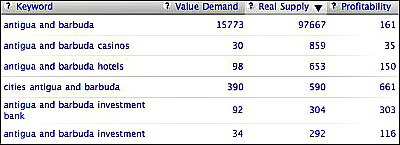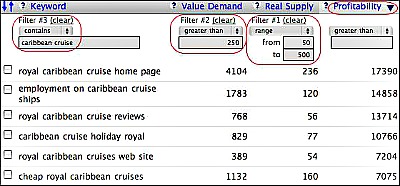| Back to Back Issues Page |
 |
|
Issue #025 -- Week 26/10/14-01/11/14 November 03, 2014 |
Hello,Greetings and General InformationA warm welcome to our new subscribers! I wish you will find My English Club fun and instructive and I look forward to welcome you as a new valued member soon. Read, learn and communicate around the world! Please feel free to contribute to these pages when you have a minute. They are meant to be a platform for exchanging ideas, stories and opinions - an ideal medium for practicing your English, which should be used to the full. Together, let's bring it alive, let's make it the welcoming community you wished for, when you joined. You and your friends can subscribe individually through the form on My English Club. If anybody mentions to you that they are interested in receiving it, please tell them this - many thanks. Also, they can read the previous issues on Back Issues for English Corner E-zine. Month 3 ~ Lesson 10We started studying three subjects back in September 2014: pronunciation and grammar for improving your communication skills, as well as website design and development, for applying your English in practice once you get skilful in English and website building. Well, my friends, we’ve pretty much covered the basics of pronunciation in English. You do need to practice and to experiment with what I taught you in the previous lessons, but those are pretty much all the secrets of a good pronunciation in English. In a more extensive course, you would take each little detail and expand on it accordingly, which is what I think you would start doing, now that you have the theory of it. If you need a private teacher for this, let’s look into some form of tuition, but this would need to be on a paid basis and in a rigorous, disciplined fashion. Let me know, by replying to this message by email. For now, I’m going to turn our attention to the next fortress to be conquered in our quest to learn English and improve our communication skills – READING. I’m going to share the basic secrets to good reading and I’ll give you some tips on how you can improve this aspect as well. Ready? Before we start, you can find our past lessons as follows: Pronunciation: Reading ~ An IntroductionIn my experience so far, I figured that the biggest obstacle in learning English is not having sufficient vocabulary, which in turn will influence one’s grammar, let alone the impasse it would put into one’s development of writing and speaking skills. Then, of course, if your speaking level is low, so will your listening be. The best way for increasing your vocabulary is through reading. Not so much through all sorts of exercises and list of words, which you can memorise till kingdom come (forever), which can help, but through pure, straightforward reading, which you can do anywhere and at any time. Reading should be fun and, if you choose your materials according to your liking, it could also be adventurous. People, especially children and beginners should not be terrified by reading in front of a class, or to their colleague/parents. They should be taught to take pride in their abilities and improve on a day-to-day basis. Only steady improvement can lead to success, not crashing everything in before an exam – that can help for the moment, or on the contrary do more harm, as it’s usually the case. In working daily for a consistant improvement, the most important quality is a strong discipline, not so much the time that one has available daily. One can stretch time, but one cannot do anything with that time, if one does not put in the effort and the concentration to do the necessary task. Now, it’s all very well to find all these courses and techniques in fast and light-speed reading, but what do you do when you’re starting up with a limited vocabulary and trying to build on a fragile grammar structure that a beginner usually struggles with? Normally, it’s easier to get a child onto a good path in reading, as a child will not question the task – they will just embark on the activity, as long as it’s fun. An adult on the other hand, will start with high expectations and unreasonable wishes, based on the idea that they should be able to read much more and faster by now and that they want it all done by… yesterday, preferably! Starting from a frustrated standpoint will only harm your thinking and feelings and it will shadow the positive attitude to reading and writing that is so vital in this process. Whether you are teaching your child to read, or you are using these ideas in your own attempt to improve your reading, the secret of success is in reading constantly and progressively. You need to find the best ways of stimulating interest and improving reading skills – the two main facets of the constantly improving reading process. In this course, I shall give you some methods you can use and I shall unveil some ways in which you can build your reading skills systematically. This course is for beginners and for parents who want to use it for the benefit of their children. It applies to learners of English as a foreign language, but it can also help native speakers in search of an orderly method for improving their reading skills. Why? Because literacy (the ability to read and write) is not always the highest in developed countries, as the Index Mundi literacy graph shows it. What I suggest to you is to take a different approach to reading during this course than you had at any point while learning. Treat reading and your on-going exercises as part of a well-being programme, consider reading as a ritual for feeling better and start a routine for yourself or for your child who is to embark on a lifetime adventure. Remember (if you were so lucky – I for one, wasn’t) when one of your parents used to read you a story every evening and how that was the high point of your day? That’s what I mean – give yourself/your child the gift of words that gently stimulate your/their imagination and stick in the memory as a result, because what you like will stay with you for as long as you focus your attention onto it. If you apply awareness to what you are doing, you will know every day what you have done, the words and expressions you’ve conquered on that occasion and where this is taking you on a daily basis. I found this quote somewhere online: “Knowledge of what is possible is the beginning of happiness” [G. Santayana]. This says that if you are aware of and you know what you are doing and what you can do as a result, you will begin to feel happy and this is true. Apply that feeling to your reading exercises and you’ll find that you can do much more than you initially thought possible. This is what I wish to inspire in you – it will be up to you to let me know whether I managed to achieve this or not, by the end of this course. Grammar ~ Linking Signals and their FunctionsWhether you are communicating in writing or in speech, you help people to understand your message by signalling how one idea leads on from another. It’s like the ‘signposts’ on the highway, indicating how two roads either come together or they part, as the case may be. The words and phrases that have this connecting function generally come at the beginning of a sentence. They have a number of functions, as we shall see in a number of lessons, of which we’ll consider the first three today: (a) Making a new start or a transition ===== ===== ===== ===== ===== ===== ===== ===== ===== (a) One makes a new start in speech, or in writing, when one wants to indicate a new thought in the context. How do we introduce these to our audience? I told you everything I know. Now, what was the other thing you wanted to talk to me about?' 2) Another very handy word for this function is “Well”. i. This usually indicates a new start in the train of thought: [A] Do you remember what a great holiday Jim had in Crete last year? “Well” here means roughly ‘I am now going to tell you something new’. ii. But “well” can also signal an in-between response, mostly used where a speaker cannot give a definite ‘yes’ or ‘no’ answer: [B] Well, darling, I was rather hoping to take the children to Disney World this year. Couldn’t you talk to me before booking anything? Or: [A] Could we meet at 5pm tomorrow? iii. Well is also frequently used when the speaker is asked for an opinion, and in this case it signals caution or reluctance: [A] What will your wife think when she finds out what you’ve been up to for the past two months? ===== ===== ===== ===== ===== ===== ===== ===== ===== (b) Our second category of functions is changing the subject, which also needs to be indicated, and we use expressions like incidentally or by the way for this I’ve been thinking to get to the shopping mall through the centre of town – what do you think? Incidentally,/By the way, Mike told me they opened the High Street by now, so it should be quicker. ===== ===== ===== ===== ===== ===== ===== ===== ===== (c)Another linking signal category of words and phrases is the one indicating listing and adding. This can also be done in a number of ways, the most common being: - By using adverbs: firstly (first), second(ly), next, last(ly) (or finally) - Or phrases such as: to begin with, in the second place, to conclude - And other adverbials: also, moreover, furthermore, what is more "Several causes for the flu epidemic were given to the health and safety inspectors. To begin with, the building was too cold during the winter months. Secondly, people didn’t have sufficient fuel to burn while they were at home. Not enough nourishing food, moreover, was another cause for their low immune system level… And to conclude, they were passing a cold from one to another, within the constraints of the small apartments they were living in." We find this choice of words mostly in formal, written communication. On the other hand, in spoken debate or a discussion, we could also find expressions like: ”And another thing…” and “I might add…”. Website Design with SBI! ~ The Filter Tool - Phase 2Having sorted by Real Supply to do a quick check of the winnability of our 3 potential Site Concepts; then having filtered by Value Demand (greater than 1,000) to get a quick idea of the depth (number of keywords with high Demand) and the intensity (how high) of the Demand for each of the 3 Site Concepts, we are now going to look into another action we can take by using the KWL [Keyword List]. In Phase 2 we shall firstly look for Demand depth... a good number of keywords with sufficient Demand, in which case we can: • Change from "greater than" to "range" in Value Demand.
Conclusions? • This new niche has winnable Real Supply ...
At this point, you are ready to check the Profitability of each set of keywords, click on the Profitability label to sort that column.
By now, you are definitely forming opinions and drawing near the end of your decision-making process. In our next lesson on choosing your Site Concept we shall determine Overall Depth, which will give us a strong idea of the potential of each Site Concept Keyword. At the end of that stage, you will have all the information needed to make the final decision, considering more than just numbers. That will conclude our process of choosing your niche and ultimately your Site Concept - the theme of your website. This is the content of what is called 'Day 2' in the SBI! Action Guide = the course that comes with the system I'm using for developing this website. If you recall, the course is split into 10 sections. In the 3rd session, (which will also last for a complete month in our little lessons here), we shall look into brainstorming profitable topics, after which, in session 4 we shall learn about monetization options. This Is It, Folks!I hope you find this information useful and not too confusing. Even though you're in the stage of building on it, have patience at this point in your learning and you'll be able to reap the fruit of your work later on, whichever aspect of our lessons you are concentrating on. Please feel free to comment and suggest your ideas by replying to this email - I look forward to hearing from you. OK, I wish you all a great week ahead. Have fun, as always! Lucia da Vinci Founder of My English Club |
| Back to Back Issues Page |




